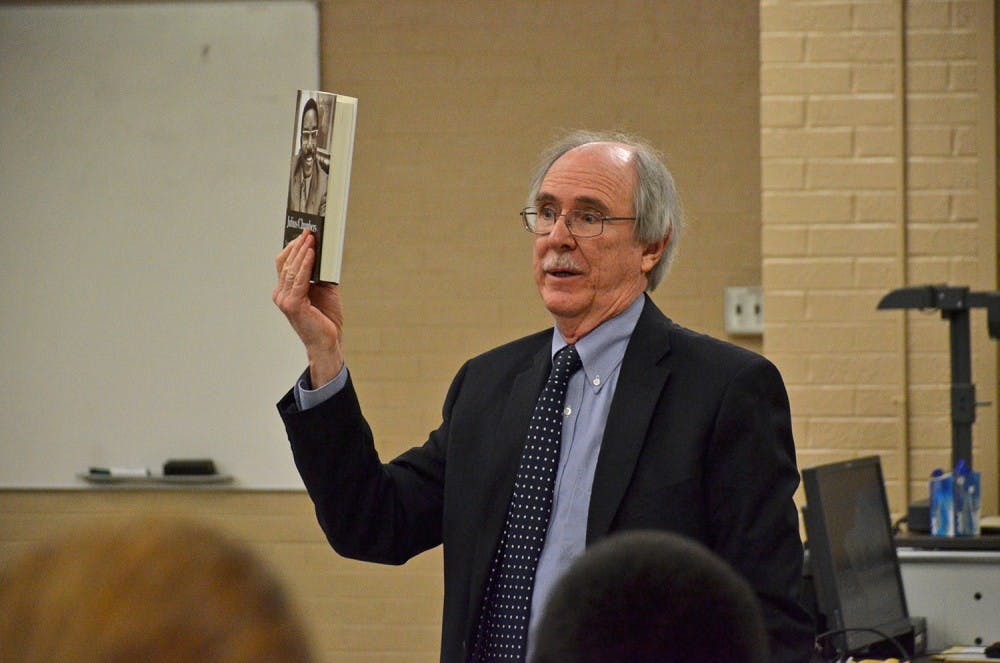The event was organized to draw attention to the importance of the center in hopes of preventing its closure, although the BOG is only in preliminary steps of the evaluation process.
One panelist, Gene Nichol, professor and former dean, described how students can make a difference for the center.
“I wouldn’t trust the representation of chancellors and provosts and deans, but I would trust your engagement, your powerful struggle over what a legal education at the University of North Carolina can be,” Nichol said. “That can make a difference.”
The event focused on Chambers’ work and legacy in civil rights law, including a panel of three faculty members who knew or worked with Chambers. The panel included Nichol, professor and former dean Jack Boger and Elizabeth Haddix, a senior staff attorney at the UNC Center for Civil Rights.
Chambers was a groundbreaking civil rights lawyer, winning cases against racial segregation since he graduated from the UNC School of Law. During his presentation, Nichol called him the greatest lawyer to ever emerge from the University.
Nichol said he asked Chambers to help him found the UNC Center for Civil Rights, which continues to provide an outlet for law students hoping to work on civil rights cases today.
All three speakers noted the center may be evaluated for decommission, and they urged students in attendance to support the field of civil rights law. Haddix said Chambers provided an excellent model of conduct.
“That professionalism in the face of being treated oftentimes like you’re less than, like you’re not quite up to par, like you’re a civil rights lawyer because you weren’t at the top of your class in high school,” Haddix said, “That’s something we always keep our eye on at the center, and we are grateful for his model and his memory in that regard.”




